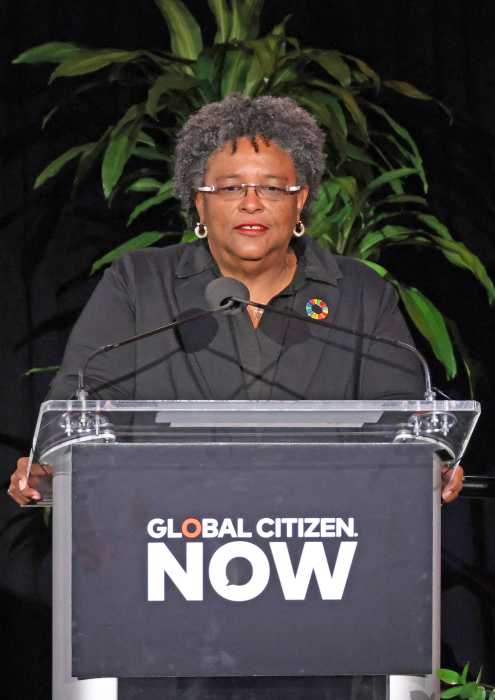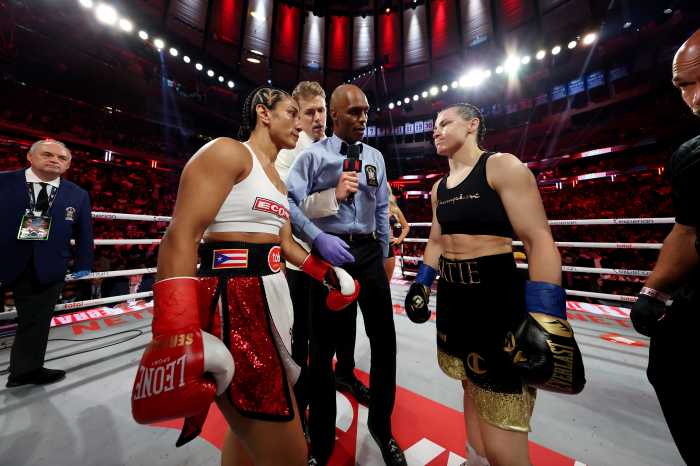A new, mandatory sex education program for city middle and high school students will start in January, requiring a semester of sex education in sixth or seventh grade, and again in ninth or 10th grade. Not everyone is happy with the development, with critics arguing for greater emphasis on abstinence education and against programs that usurp the role of the parent. What is your point of view? Answer the query below — or e-mail us at SchoolBook@nytimes.com. In this opinion post, Planned Parenthood says sex education is an opportunity.
New York City’s new comprehensive sex education program is a big change from the last 20 years when there was nothing. But let’s be realistic. Our young people are learning about sex and sexuality anyway: from television, radio, movies, the Internet and, of course, their peers. If we do not give them facts and good information, all they end up with is the misinformation and warped messages about sexuality they have absorbed from pop culture.
Yet while sex education is a fantastic first step toward making sure our children are healthy and safe, it does not exist in a vacuum. It needs to be integrated with parents and key people in the community.
So let’s see this sex education program for what it is: an opportunity to start a conversation. You have the chance to strengthen your relationship with your child, share your beliefs and values, and make sure your children have the resources they need to keep themselves safe, no matter what situations they may face.
I know for many of us having a frank conversation with your children about sex and sexuality can seem like an insurmountable obstacle. It might not be something our parents did with us when we were young, and if we have not started having these conversations early, the years of not talking about sex or sexuality can seem to have built up into an uncomfortable silence.
And you are not alone. More than half of parents across the country feel uncomfortable talking to their kids about sex.
But it is easier than you think. Through our Adult Role Models program, Planned Parenthood of New York City has been running parent education classes on how to talk to your children about sex and sexuality for more than 14 years. We have published several publications on the subject, in multiple languages, and run workshops throughout the city in schools, churches and community centers.
What we say to our children is important, and will stick with them more than the messages they see on television. And there are a few steps you can take to make sure the conversation is as easy, and effective, as possible.
Avoid one big talk. In fact, lots of little talks can be more effective, and save you the stress of trying to cram every piece of information into one conversation.
Take advantage of “teachable moments.” Sex education classes are one semester-long teachable moment. Ask your children about what they are learning, what they think about it, if it is new information or things they knew already. Use what they tell you as a chance to reinforce your own values, and to start a continuous dialogue.
Use the questions they ask as an opportunity to start a conversation. But remember, how you respond to a question is important. Always:
React calmly and normalize and validate the question, but also try to find out where the question is coming from. Something like, “That’s a great question; thank you for asking me. How come you’re asking me that question today?” works well.
Ask them what they think. This lets you know how much your child already knows. It also allows your child to begin to articulate his or her views on sexuality, which can be very self-empowering.
Answer the question as honestly as you can, and include your personal values. It is O.K. to admit if you don’t know the answer; the most important thing is to keep the conversation flowing.
Check in after you answer their question, to make sure that they understand your answer.
Studies show that not only do our childen want to hear from us about sex and sexuality, but when they do it helps them delay first sexual contact and make healthier, safer decisions if and when they become sexually active.
Sex education is an important first step, but sex education alone will not keep our children safe. We as parents and caregivers still have an extremely important role to play. Our children need us, they need our guidance, our support, and our help as they navigate the tricky waters of teendom and adulthood.
Joan Malin is president and C.E.O. of Planned Parenthood of New York City.

























